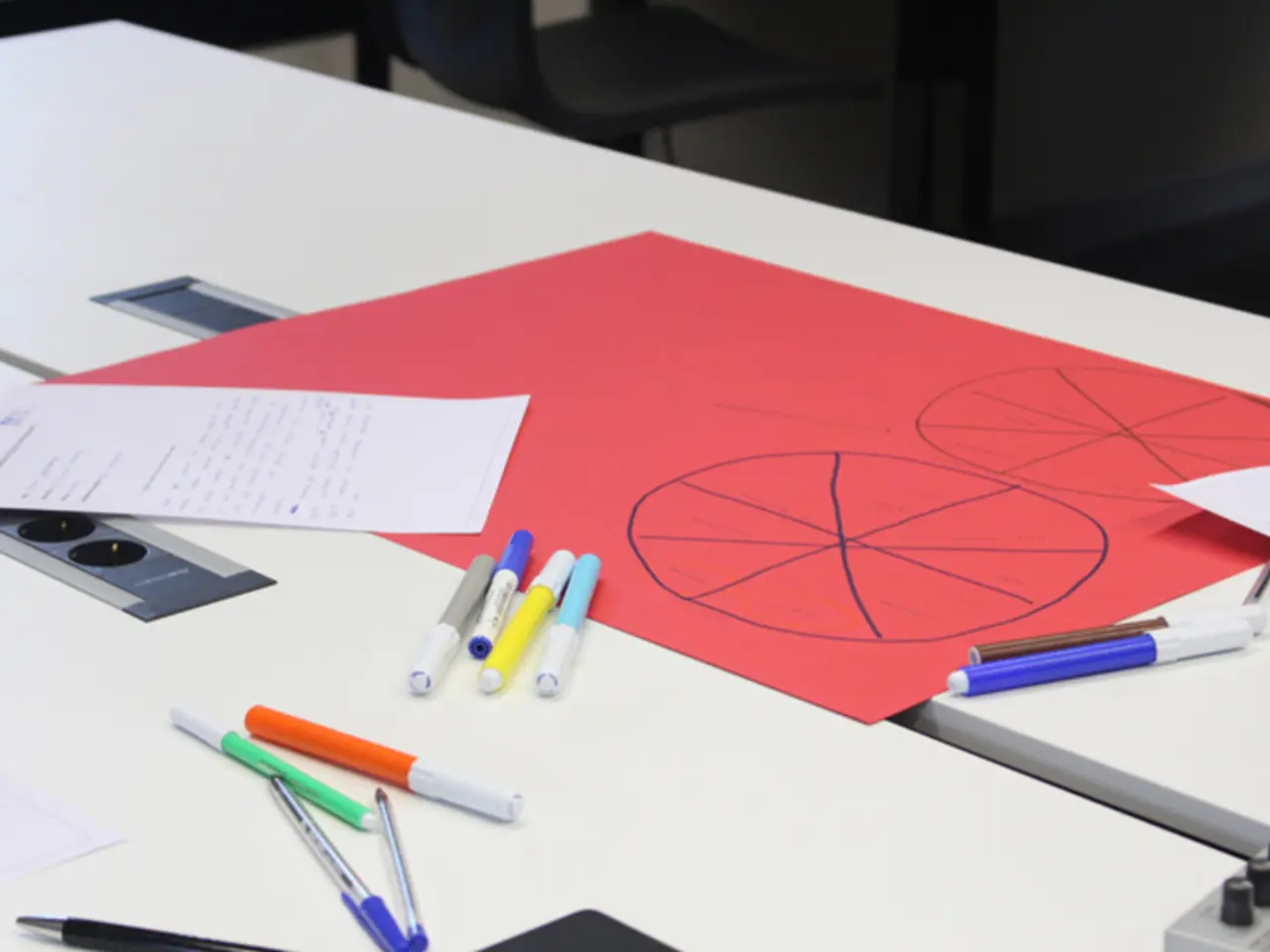Improving brain health for increased cognitive toughness
In the modern world, where communication styles are diversifying, it's essential to adapt and maintain a strong cognitive resilience. This article outlines evidence-based strategies to enhance cognitive function and overall mental health.
1. **Mental Exercise** - Engage in mentally stimulating activities like puzzles, learning a new language, or playing musical instruments to build cognitive reserve. - Use techniques like cognitive-behavioral therapy (CBT) to challenge negative thoughts and promote healthier thought patterns.
2. **Nutritious Diet Choices** - Focus on a diet rich in fruits, vegetables, whole grains, lean proteins, and healthy fats to support brain health. - Include foods high in omega-3s, such as fish, nuts, and seeds, which are beneficial for brain function.
3. **Regular Physical Activity** - Engage in consistent physical activity, such as walking or yoga, to promote the release of brain-derived neurotrophic factor (BDNF), supporting neural health.
4. **Mindfulness Techniques for Stress Reduction** - Practice mindfulness and meditation to enhance emotional regulation, reduce stress and anxiety, and improve cognitive functioning. - Use yoga and breathing exercises to further reduce stress and enhance well-being.
5. **Prioritising Quality Sleep** - Establish a consistent sleep schedule and create a relaxing sleep environment to improve sleep quality and cognitive function.
6. **Nurturing Social Connections** - Build and maintain strong social connections through activities like volunteering, joining clubs, or spending time with friends and family. - Seek emotional support from social networks to help cope with adversity.
7. **Continuous Learning Opportunities** - Pursue formal education or training to enhance cognitive reserve and reduce the risk of cognitive decline. - Continuously challenge yourself by learning new skills or hobbies to keep the mind active.
8. **Avoiding Harmful Substances and Behaviors** - Avoid substance abuse and reduce or eliminate harmful behaviors (e.g., smoking) to protect cognitive health. - Promote overall well-being by avoiding unhealthy behaviors and fostering a positive lifestyle.
By incorporating these strategies into daily life, individuals can enhance their cognitive resilience and improve overall mental health.
Additionally, establishing a calming bedtime routine, adopting a holistic approach to fitness, engaging with people from diverse backgrounds, and skill diversification can further contribute to cognitive resilience enhancement.
For instance, engaging in mindfulness meditation or yoga can reduce stress and increase overall well-being while improving focus and attention. Prioritising quality sleep enhances cognitive resilience by improving memory retention, decision-making skills, and creative problem-solving abilities.
A well-balanced diet consisting of whole foods provides essential vitamins, minerals, antioxidants, and healthy fats that play crucial roles in maintaining optimal brain function. Continuous learning and skill development keep the brain sharp and agile, allowing for adaptation to new situations and challenges.
Limiting exposure to screens before bed and adopting a nutritious diet rich in brain-healthy foods like blueberries, walnuts, fatty fish, and leafy greens can improve memory function and reduce the risk of developing neurodegenerative diseases like Alzheimer's.
Regular physical activity, such as walking, running, swimming, or cycling, can increase blood flow to the brain and stimulate the growth of new neurons, enhancing cognitive resilience. An interdisciplinary approach to maintaining brain health, including elements from psychology, neuroscience, education, and physical fitness, is essential for enhancing cognitive resilience.
Creating a sleep-conducive environment, incorporating lifelong learning into your daily routine, joining clubs or participating in group activities, nurturing social connections, and incorporating mindfulness techniques into your daily routine can also contribute to cognitive resilience enhancement.
- Embracing Education and Self-Development, lifelong learning opportunities can help build cognitive reserve, reduce the risk of cognitive decline, and promote overall mental health.
- Incorporating Health-and-Wellness practices into your lifestyle, such as physical exercise and healthy eating, can contribute to cognitive resilience, emotional regulation, and stress reduction.
- Pursuing Personal Growth through activities like learning new skills or hobbies can also help keep the mind active and enhance cognitive function.
- Adopting a Fitness-and-Exercise routine that includes both physical and mindfulness techniques can lead to improved cognitive function and overall well-being.
- News and Science updates about brain health can provide valuable insights into maintaining cognitive resilience and progress in this field.
- A Lifestyle that prioritizes healthy eating, physical activity, quality sleep, and social connections can contribute to a strong cognitive resilience.
- Mental Health strategies like cognitive-behavioral therapy (CBT) can help challenge negative thoughts and promote healthier thought patterns, further enhancing cognitive function.
- Balanced Nutrition, including brain-healthy foods, can support cognitive function and overall mental health by providing essential nutrients for optimal brain function.
- Engaging in Music, whether as a listener or a player, can help improve cognitive function, emotional regulation, and overall well-being.




